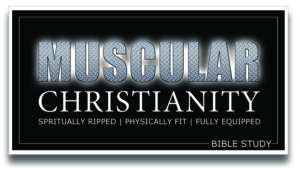Because of the Constitution, Not in Spite of It
 Ain’t it amazing when you hear people talk about the US as those who have something real to compare it to? Whether by default or design, they are embracing all the freedoms that go along with our spiritual / moral heritage. This is the very thing that the Left wants to retool, believing it to be antiquated and even sinister.
Ain’t it amazing when you hear people talk about the US as those who have something real to compare it to? Whether by default or design, they are embracing all the freedoms that go along with our spiritual / moral heritage. This is the very thing that the Left wants to retool, believing it to be antiquated and even sinister.
There are some who believe the Constitution to be toxic in that it was written and ratified by a group of men, many of whom were slave owners. What’s ironic about their perspective is that they’re demonizing the very paradigm that gives them the right to be critical.
The Bill of Rights was written by James Madison. On June 8, 1789, he addressed the Congress and insisted that the Constitution would not be complete unless amendments were added that explicitly protected individual rights. These would be the first ten amendments made to the Constitution and among them were the Freedom of Speech and the Freedom of the Press.
James Madison was a slave owner. Granted, the irony is obvious. How can a man who views an entire race of human beings as nothing more than pieces of property to be bought and sold not recognize how that view compromises the declared scope of the Constitution as well as the Declaration of Independence? But in the end, the quality and durability of the Constitution is not measure by the moral flaws of the men that wrote it. Rather, it’s gauged according to the substance of the document itself.
For those who want to dismiss the Constitution as racist, it’s not just the Bill of Rights they should be considering. It’s also the 13th, 14th and 15th amendments that were made by the Republican party1 in the aftermath of the Civil War – the only war that was fought in the history of our planet that was waged for the sake of eliminating the sin of slavery.
The 13th amendment banned slavery, the 14th amendment defined a citizen as anyone born in the US which overturned an earlier ruling that prohibited Black people from voting, and the 15th amendment was an expansion of the 14th amendment. It prohibited governments from denying US citizens the right to vote based on race, color or past servitude. Like so many on the Left who labor to promote convictions based on a very judiciously selected collection of facts in a way to muffle the truth, is not only flawed, it’s downright belligerent. 360,000 Caucasians died to ensure the end of slavery as well as create the political environment that would allow for the aforementioned amendments.
By condemning the Constitution, they sneer at the very laws that give them the right to mock their government without fear of punishment. It’s this same legal foundation that provides all of us the opportunity to succeed and grow. And none of this came about without the blood and sacrifice of millions of people in the context of wars that were fought to protect those freedoms.
In short, the Oath of Allegiance that an immigrant has to state in order to become a citizen is something they embrace as a privilege. It includes supporting and defending the Constitution. They joyfully swear their allegiance to our country and its laws because they appreciate the profound rights guaranteed by the philosophical and legislative foundation crafted by flawed men, no doubt, but based on Divine Absolutes that prevent the corruption of power from restricting an individual’s right to life, liberty and the pursuit of happiness.
The video clip featured on the right is more than just an inspiring scene of individuals realizing their dream of citizenship in the US. It’s a reminder that we are still a beacon of hope and opportunity for much of the civilized world. And we are that because of the Constitution, not in spite of it.
1. 13th Amendment – James Mitchell Ashley of Ohio (Republican), 14th Amendment – John A Bingham of Ohio (Republican), 15th Amendment – John A Bingham of Ohio (Republican)
Nazi’s
 The question being asked was, “Is MAGA the New Nazi Party?“
The question being asked was, “Is MAGA the New Nazi Party?“
The responses were typical of the way some want to demonize those can’t dispute without sounding selfish and foolish. They approach the world with a strategy that says if I can’t get you to agree with me, I’ll get you to feel sorry for me.
On the surface, it’s frustrating because of the way the obvious truth is ignored in favor of catering to those who insist that because they’re uncomfortable they automatically qualify as a priority. They’re a casual spectator looking for a quick and easy way to be perceived as sophisticated and compassionate.
But there are others who are genuinely toxic. They embrace the idea that however flawed their rationale may be, if they can reduce those who they disagree with to the status of a villain, they are now no longer obligated to explain why their ideas don’t work, they can now simply “resist” those who oppose them.
You can’t help but notice a common thread running through the talking points of the Democrat party. Same sex marriage, abortion, or a desire to transform our country into a socialist society all require a philosophy that perceives the individual as his own absolute.
- I have the right to redefine marriage
- I have the right to decide who lives and dies
- I have the right to give away other people’s money
This is part of the reason why the “separation of church and state” is so often cited as a way to maintain the individual as the gauge by which all things are measured. Despite the context of the First Amendment being a safeguard to restrict government’s influence on Christianity, the Modern Day Democrat has invented a whole new perspective where the Bill of Rights was put in place to accommodate the person who wants to envision himself as his own bottom line and truth is whatever an individual wants to believe.
Of course, that isn’t an accurate interpretation of history, nor does it translate to a sustainable and coherent mindset. But the flaws there are inherent to that approach are not noticed when you’re able to successfully position yourself as a victim and anyone who disagrees with you as a villain.
This is the rationale that drives those who want to refer to President Trump as a tyrant and those who support him as Nazis. What’s really ironic is that those who are the most aggressive in leveling these kinds of accusations against the Republican party are the ones that resemble the Third Reich the most, given their control of the media and the violence they’ve exacted upon their political opponents (see sidebar).
Below is a response I wrote to the aforementioned question: “Is MAGA the New Nazi Party?“ No. MAGA is not the new Nazi party. The only way you can arrive at that conclusion is to not only take President Trump’s comments out of context, but you have to begin from a philosophical disposition that says the individual is his own absolute. In light of a situation that doesn’t exist, you have to believe yourself capable of speaking something into reality and then vilifying anyone with the capacity to reveal the lack of substance that characterizes your platform…
I read the “Donald Trump’s War on Free Speech & the Need for Systemic Resistance” article you cited. I’m assuming that is part of your response to my asking for specific actions done by the Trump administration that qualify him as a Nazi.
The article cites President Trump saying, “We took away the Freedom of Speech” as an example of how Trump is deploying a fascist approach to government.
But did you read the context of his comment? I did. Here’s what the President said: “Only days ago, Nick Sortor was assaulted in Portland by a flag burning mob and we’ve made it one-year penalty for inciting riots. We took the freedom of speech away because that’s been through the courts and the courts said, you have freedom of speech. But what has happened is when they burn a flag, it agitates and irritates crowds. They’ve never seen anything like it, on both sides, and you end up with riots. So we’re going on that basis. We’re looking at it from — not from the freedom of speech, which I always felt strongly about, but never past the courts. This is what they do, is they incite — when you burn an American flag, you incite tremendous violence.”
“Freedom of Speech,” in the context the President was using, was referring to a legal sounding tactic used to justify saying that you have license to say and do whatever you want, and not have to take responsibility for what occurs as a result. In that context, that’s not a “right,” that’s not even an excuse. It’s a tool a coward uses to distract attention away from the true intent and substance of his actions.
It’s interesting that among those who insist that the President is infringing on the right to free speech are those that are very quick to say, “Hate speech isn’t free speech.” Suddenly, censorship is appropriate when a moment ago it was considered unconstitutional.
Fact of the matter is, the things you want to say constitute Fascism on the part of the Republican party should be recognizable to you, given the way the Left has killed, censored, and imprisoned their political opponents, all in the name of resisting the “threat to democracy,” when it fact, it’s a resurrection of accountability.
The law is only as good as the truth and a court is only as good as the law.
I spent nine years in the USMC. Flag burning may be a form of free speech to you, but to anyone who’s ever made a sacrifice for what that flag stands for, it’s a toxic attack on the ones who gave their lives to defend the rights and principles you’re now using to desecrate their graves.
Every expert, every study, every poll, that you would cite to substantiate the idea that Trump is a Nazi, that his supporters are bigots, and that flag burning is a legitimate manifestation of free speech has as its fundamental starting the idea that the individual is his own absolute. Truth is therefore reduced to a personal preference and anyone who would dare dispute what you “believe,” is now a liar and a tyrant.
The law is only as good as the truth and a court is only as good as the law.
There were a number of subject matter experts who were insisting that the Jew was to blame for all of the problems facing Germany in the immediate aftermath of World War I. Thanks to the polls, studies, and conclusions published during that time, Hitler’s agenda was able to gain enough traction where it became a national battlecry.
You’re doing the same thing. In your feeble attempts to associate Trump and anyone who supports him as someone who would’ve endorsed the Holocaust, you’re promoting a paradigm that says a man can compete in female sports, marriage can be redefined, illegal immigrants can enter our country at will, trade deficits can be celebrated, etc., etc. And you’re promoting it using the same tactics the Nazis used to manipulate the populace leading up to World War II.
You are the very thing you claim to despise.
The Media
 I) Intro: The Men of Issachar
I) Intro: The Men of Issachar
In 1 Chronicles, 12:32, you have this:
from Issachar, men who understood the times and knew what Israel should do—200 chiefs, with all their relatives under their command; (1 Chron 12:32)
Issachar has the ability to advise the nation of Israel on what it was that constituted the right course of action. You see this is Matthew Henry’s Commentary:
The men of Issachar were the fewest of all, only 200, and yet as serviceable to David’s interest as those that brought in the greatest numbers, these few being in effect the whole tribe. For, 1. They were men of great skill above any of their neighbours, men that had understanding of the times, to know what Israel ought to do. They understood the natural times, could discern the face of the sky, were weather-wise, could advise their neighbours in the proper times for ploughing, sowing reaping, etc. Or the ceremonial times, the times appointed for the solemn feasts; therefore they are said to call the people to the mountain (Deut 33 19), for almanacs were not then so common as now. Or, rather, the political times; they understood public affairs, the temper of the nation, and the tendencies of the present events. It is the periphrasis of statesmen that they know the times, Esth 1 13. Those of that tribe were greatly intent on public affairs, had good intelligence from abroad and made a good use of it. They knew what Israel ought to do: from their observation and experience they learned both their own and others’ duty and interest.1
This verse represents a Divine endorsement of being politically astute – to “understand the times” means that you are knowledgeable about those individuals and events that influence policy and determine the course of our nation.
You see this reiterated in the New Testament when it comes to praying for our leaders:
I urge, then, first of all, that petitions, prayers, intercession and thanksgiving be made for all people— 2 for kings and all those in authority, that we may live peaceful and quiet lives in all godliness and holiness. (1 Tim 2:1-2)
You can’t effectively pray for your leaders unless you know who they are and the decisions they’re contemplating.
Some see Politics as an arena that falls short of a legitimate mission field because they see the Sovereign Will of God as being something that cannot be altered, either by voting or by prayer (Dan 2:21). Others see Politics as the ultimate manifestation of the gospel and in so doing, “…reduce the Christian faith from a pilgrim path to heaven into a socio-political scheme for the present world.”2
Neither extreme is healthy nor holy (Ecc 7:16-18). Rather, the “Christian Citizen” should engage current events as opportunities to serve others by championing those Truths that both point to God and benefit mankind.
J.I. Packer was a brilliant theologian who, in an article he wrote for “Christianity Today” in 1985 said:
Hence, although Christians are not to think of themselves as ever at home in this world but rather as sojourning aliens, travelers passing through a foreign land to the place where their treasures are stored awaiting their arrival (see 1 Peter 2:11; Matt. 6:19–20), Scripture forbids them to be indifferent to the benefits that flow from good government [see Prov 29:2; Matt 22:21; 2 Tim 2:1-2; 1 Pet 2:17]. Nor, therefore, should they hesitate to play their part in maximizing these benefits for others, as well as for themselves. The upholding of stable government by a law-abiding life, and helping it to fulfill its role by personal participation where this is possible, is as fitting for us today as it was for Joseph, Moses, David, Solomon, Nehemiah, Mordecai, and Daniel (to look no further). We must see it as service of God and neighbor.4
Bottom line: We have a responsibility to be involved and aware of what’s going on in Politics and in our culture.
But how do you become aware? Where can you go to learn who comprises the decision makers within our nation’s government and the issues that they’re contending with?
The media.
II) Many Advisors
Proverbs 15:22 says:
Plans fail for lack of counsel, but with many advisers they succeed. (Prov 15:22)
You need to have a plan for the way you vote, how you’re going to pay your bills and where you’re going to go on vacation.
You need a plan in order to determine how you’re going to think.
Yet, you don’t have a Top Secret clearance, you’re not a part of the Oval Office, you’re not directly privy to those things that can influence the way you process yourself and the world around you.
So, from that standpoint, you’re dependent on the media in order to formulate your plans and inform your convictions.
The problem is not every resource you have available to you is reliable.
John Norvell was a newspaper editor and one of the first Senators from Michigan. At one point he wrote a letter to Thomas Jefferson asking him for his recommendations of what books and newspapers to read in order to acquire “sound political knowledge.”5
Jefferson responded by saying:
Nothing can now be believed which is seen in a newspaper. Truth itself becomes suspicious by being put into that polluted vehicle… General facts may indeed be collected from them, such as that Europe is now at war, that Bonaparte has been a successful warrior, that he has subjected a great portion of Europe to his will, &c., &c.; but no details can be relied on. I will add, that the man who never looks into a newspaper is better informed than he who reads them; inasmuch as he who knows nothing is nearer to truth than he whose mind is filled with falsehoods & errors. He who reads nothing will still learn the great facts, and the details are all false.6
Just because it’s a headline doesn’t mean it’s a bottom line.
Bear in mind that when we say, “the media” in this conversation, we’re not referring only to the Journalistic profession. “Media” refers to any kind of published information, however it might be packaged.
- A punch line (Prov 26:18-19)
- A movie script
- A song lyric (Dt 33:19 [“…if a man were permitted to make all the ballads he need not care who should make the laws of a nation” {Andrew Fletcher}]7)
- A headline
- A novel
One thing you want to be aware of: While the above bullet list implies a collection of distinct mediums, the fact of the matter is many of the more well-known media brands are subsidiaries of a larger conglomerate.
In a WebFX article entitled, “The 6 Companies That Own (Almost) All Media,” 6 companies are listed that represent the bulk of what dictates the headlines, the punchlines, the hooks and the books that we consume every day.8
 For example, “National Amusements” includes :
For example, “National Amusements” includes :
- CBS
- CMT
- MTV
- Paramount
- Show Time
- VH1
- Viacom
- Nickelodeon
- Simon & Schuster
- TV Guide
Disney owns:
- ABC
- LucasFilm
- ESPN
- A&E
Comcast, which is an internet service provider, owns NBC along with Universal Studios. NBC Universal own Capitol Music, Geffen Records and more.
TimeWarner owns CNN, TBS, Warner Brothers Entertainment…
Most of your major news sources answer to an umbrella company that includes any one of a number of mediums that cover both sports and entertainment.
In other words, however these companies want to portray what’s true, they can do it through a variety of media outlets that go beyond a mere commentator and a television camera.
You also have Social Media. New research shows that 71% of Americans get their news from Social Media platforms.9
You have access to “many advisors,” but how do you determine which one is worth listening to?
III) Test the Spirits
1 John 4:1-3 says:
Dear friends, do not believe every spirit, but test the spirits to see whether they are from God, because many false prophets have gone out into the world. 2 This is how you can recognize the Spirit of God: Every spirit that acknowledges that Jesus Christ has come in the flesh is from God, 3 but every spirit that does not acknowledge Jesus is not from God. This is the spirit of the antichrist, which you have heard is coming and even now is already in the world. (1 Jn 4:1-3)
While it’s tempting to process what John is saying as something that applies exclusively to the gospel, you want to remember what it says in Ephesians 6:12:
For our struggle is not against flesh and blood, but against the rulers, against the authorities, against the powers of this dark world and against the spiritual forces of evil in the heavenly realms. (Eph 6:12)
You don’t want to lose sight of the spiritual realities that serve as the fuel and the foundation for the practical tensions that exist in our own lives as well as on the national and global stage.
It all comes down to a spiritual struggle. This isn’t just “media bias” and it’s more than the Surgeon General or the Electoral College. Yes, these are important topics and essential institutions, everything inevitably falls beneath the heading of a spiritual contest.
A “lie” is anything that’s not true. It’s the signature tactic of Satan himself (Jn 8:44). However a falsehood manifests itself, regardless of the subject matter or its severity, its source is a dynamic whose intent is to steal, kill and destroy (Jn 10:10).
By subscribing to a lie, you place yourself on a path that, however incremental it may appear, adds weight to the load you’re having to carry as you navigate the challenges and questions that are a part of the human experience.
In time, that weight will prove lethal:
For the waywardness of the simple will kill them, and the complacency of fools will destroy them; 33 but whoever listens to me will live in safety and be at ease, without fear of harm. (Prov 1:31-33 [see also Ps 49:20; Prov 11:14; Hos 4:6)
This is why it’s important to “cross examine” those sources that purport to be telling the truth.
In a lawsuit the first to speak seems right, until someone comes forward and cross-examines. (Prov 18:17)
You want to test the spirits and not just accept things at face value. You do that by first asking how the source answers the questions, “Who’s in charge?”
This goes back to the core of 1 John 4:1-3. Does the source of your information has as its philosophical foundation an acknowledgement of the death and resurrection of Christ as a historical fact?
On the surface, that may seem a little far-fetched and perhaps a little over the top. How many companies do you know have a “Statement of Faith” included as part of their corporate mission statement?
But even if you’re not publicly acknowledging the empty tomb, you can still be on the right side of the issues if you’re willing to be used by God to disseminate the truth.
A good example of that is King Cyrus…
King Cyrus was the King of Babylon who gave the Jews permission to rebuild the Temple and the city of Jerusalem (Ezra 5:13; Is 45:13). Yet, King Cyrus was not a believer…
For the sake of Jacob my servant, of Israel my chosen, I summon you by name and bestow on you a title of honor, though you do not acknowledge me. 5 I am the Lord, and there is no other; apart from me here is no God. I will strengthen you, though you have not acknowledged me, 6 so that from the rising of the sun to the place of its setting people may know there is none besides me. I am the Lord and there is no other. (Is 45:4-6)
Put this in contemporary terms…
Would you have voted for Cyrus? According to the criteria that some use, the answer would be, “No.” But you have to remember that God can catch a fly ball with either a dirty mitt or a brand-new glove. The issue isn’t the condition of the mitt, but the skill of the Hand inside.
With Cyrus, you had someone who was used by God to accomplish the will of God and that’s the bottom line. However spiritually or morally bankrupt a person may be, you want to be mindful that if the presence of sin is a determining factor, that no one can be trusted to lead effectively or wisely.
Look for where God is working and support those who are being used by Him to do His bidding (Mk 9:40). Look to those media sources that, however “secular” they may appear, are nevertheless publishing information that is credible both in the sight of man and God.
When they report on those issues or feature op-ed pieces pertaining to the issues that dominate the headlines…
- Are all sides of the issue addressed with the same amount of verbiage?
- Does one side get treated with sympathy while the other side is viewed as cruel and uncaring?
- Is there a subtle endorsement of an anti-biblical perspective?
That’s something to consider.
And remember too that you don’t have to lie to be guilty of not telling the whole truth.
Consider the following:
Pharisees Doubt The Resurrection of Christ
All of Israel is caught up in the rumors pertaining to the supposed resurrection of Jesus of Nazareth, a religious and political criminal that was recently put to death. While some are insistent that he is, in fact, alive, there are many others who dismiss it as yet another attempt being made on the part of his followers to validate his claims that he was the Son of God. We sat down with several high-ranking officials, both from the Jewish and the Roman institutions that championed what was a very difficult, yet just, decision to get their thoughts.
From the very beginning, the Nazarene who referred to himself as the Son of God, was a problem in the way he incited many Jews to question the Law and their own heritage. His exploits weren’t curious as much as they were damaging, though many of those who heard him speak were unaware of just how toxic his perspective was. Thankfully there were steady and committed hands ready to prevent his corrosive effect from spreading by publicly questioning him and revealing his true colors.
“We challenged him,” said Simon, one of our more prominent Pharisees. “We demanded that he validate his testimony concerning himself and he wasn’t able to do it. (John 6)”
“His illegitimacy is no secret,” says Reuben, an associate of Simon and with him while they were questioning Jesus. “His mother was a disgrace and to see him now trying to assert himself as being equal to Jehovah is not only ludicrous, it’s almost sad to see someone so desperate to cover up the scandalous and unlawful aspects of his birth. (Mk 6:3)”
Clavius, a familiar tribune who serves Rome and has been an advocate for our Jewish traditions on many occasions, has no trouble being critical of Jesus.
“I remember a servant who lived in the household of one of my centurions who was deathly ill,” said Clavius. “He asked the Christ to come and heal his servant and this Jesus, who is supposedly compassionate, never even came to his home. I remember hearing that and from that moment forward, I was convinced that he was a problem and a fraud. (Matt 8:5-13)”
Atticus is yet another distinguished Roman, having served in the Roman army for two decades and a veteran of many conflicts. He was one of the guards who were stationed at the site of the Christ’s tomb (Matt 27:62-65).
“It’s insane!” he said. “I’ve been around death more than once. Jesus died. He’s dead. It might make you sad, but that doesn’t change the fact He’s gone. And I know what it is to grieve, but to see this rabble refuse to accept the death of their cause and their champion by inventing this ridiculous story that he ‘rose from the grave’ is nothing more than a crazy effort to not accept the fact that your Christ is no more and you need to move on.”
When asked about the way in which the Pharisees were accusing the disciples of having stolen Christ’s body in order to give the appearance of Jesus having risen, Atticus said, “Your readers need to know that the disciples are lying! There is no resurrection. They broke the seal, they violated the sovereignty of Rome, they’re a stench among their own people…they’re insane! (Matt 28:11-15)”
Among those who insist that he rose is a former small business owner named Peter. As a fisherman, your fortunes are limited by default. Perhaps that’s why the prospect of becoming one of the Christ’s followers appealed to him to the point where he abandoned his craft and his family (Matt 8:14-18; 1 Cor 9:5). Maybe in the context of aligning yourself with someone who challenges the governing authorities could lead to a more prominent and financially sound position. Whatever his motivation was, his resolve to promote the fantasy of a risen “Messiah” is still very much intact.
“I’ve seen him!” said Peter. “I’m ashamed to admit that during his arraignment and trial, I denied even knowing him – I was that determined to put as much distance between myself and my former teacher as possible (Matt 26:73-75).”
“But that all changed when I saw him,” Peter said. “He’s alive and I’ll stake my life on it (Acts 4:18-19).”
Peter’s passion is admirable, but does that passion negate the testimony of hundreds of eye witnesses let alone the sworn statements coming from established and reputable Roman officials and Jewish authorities?
“There is something both healthy and beneficial in retreating from emotionally charged declarations and instead cling to the certainty of one’s spiritual heritage,” said Simon. “We obey the political authorities that God has instituted and we revere the Law He gave to Moses. This is my stance and I hope it is one that our people will adopt as well.”
At no time does this article “lie.” There’s nothing inaccurate about what’s being said, but the words used to describe Peter as opposed to the Jewish and Roman authorities position his testimony as questionable. The majority of the article focuses on those who see the Resurrection as a hoax and while they do give some space to Peter’s perspective, the words they use to describe both him and his mindset are laced with cynicism and suspicion.
This is a great example of how you can be “honest” and at the same time manipulative.
You want to vet your sources by evaluating the way in which they maintain an impartial disposition with the words they use, the people they quote and even the images they display.
And should you encounter someone insisting that kind of perspective is a violation of church and state, you can respond by saying…
The Establishment Cause was not designed to limit Christianity’s influence on government, but to restrict government’s influence on Christianity. Whether you believe that or not is irrelevant.
Sixteen times Congress called for a National Day of Prayer and Fasting during the Revolutionary War.10 The Constitutional Convention met in 1787. Among the first motions carried by the newly formed Congress in 1789 was a law to hire and pay chaplains for each house.11
We say, “So help me God” when we get ready to testify in court. We say “one nation, under God” when we pledge allegiance to the flag. It’s common for a public servant to place his or her hand on a Bible when they’re getting ready to be sworn into office.
Any resource you attempt to quote as a supposed indicator of our founding fathers having a secular approach to government is inevitably a comment taken out of context and is indicative of either a personal bias or an ignorance of history, neither of which constitute a credible perspective.
The Bible has been our “go to” resource for all things moral and spiritual for the last two centuries. The only ones who oppose it are those that are determined to be their own absolute and therefore need to pose as a victim of an intolerant society in order to avoid that line of questioning that reveals their disposition to be both selfish and absurd.
The issue of religion is not defined by the presence or the absence of a church steeple. As a member of the human race, you are “religious” by default in that in order for the human experience to have any meaning, the individual needs to determine for themselves what it is that constitutes the basis for their existence and the standard by which their moral behavior is measured. However you arrive at those absolutes determines your religious paradigm.
Whenever you hear someone be critical of “religion,” though it depends on the context of the conversation, more often than not they’re asserting themselves as their own deity. While they attempt to conceal the true nature of their viewpoint by suggesting that religion provides no real, logical explanation, given the supernatural dynamic that characterizes the origin of the universe etc. Fact is, the “science” they would assert as a more substantive answer is characterized by probability values that go beyond the boundaries of absurd.
What they cling to as an alternative way to explain how the universe came to be and the intangible intricacies of the human experience doesn’t quality as an explanation as much as it does an unwillingness to concede the reality of something greater than themselves.
When they speak of “reason” and “compassion,” they are invoking those characteristics according to however they define what is logical and benevolent. There is no standard apart from the one they’re comfortable with and in that regard, they are their own bottom line.
Those who are the most vocal in their argument for the separation of church and state are not looking to “separate” the church from the state as much as they are wanting to establish a new church where the principles coming from the pulpit are more in line with what they want to hear.
They decide what’s right, moral and just. There is no authority apart from the one they’re willing to acknowledge, but…
You can’t maintain that kind of perspective without extending the same kind of methodology to everyone else. And if everyone is their own absolute, then there is no right or wrong and your viewpoint is valid provided you’re surrounded by those who agree with you.
That’s why there’s such an emphasis on the Supreme Court and the Oval Office. You can manipulate these entities to a certain extent by the way you vote, but you can’t edit the Word of God.
But if you don’t yield to the Word of God, you are then basing your entire existence on a human agency which is destined to either die, quit or fail.
By eliminating God from your worldview, you reduce yourself to a lucky accident, the universe to a pointless mistake and every rule, given and absolute to a temporary coupon whose validity is determined by either the mood of the individual or the consensus of the culture.
You are not standing on solid ground and if the resources you refer to for your news is not grounded in something more than a receipt or a humanistic worldview, your new is not standing on solid ground and isn’t news promoting all that needs to be heard.
“Doctrine” (didaskalia [dih-dahs-kah-LEE-ah]) is just another word for “teaching.”12
It says in 2 Timothy 4:3:
For the time will come when people will not put up with sound doctrine. Instead, to suit their own desires, they will gather around them a great number of teachers to say what their itching ears want to hear. (2 Tim 4:3)
Another way to determine the substance of the resources you’re looking at is to look for the presence of “Mickey Hood…”
| Mickey Hood | ||
| M | Mobs | They spend more time talking about Labels, Mobs and Crowds than they do a Name, a Person and a Choice. |
| C | Characters | They spend more time assaulting their opponent’s character than they do discussing their opponent’s content. |
| H | Hurt | They spend more time pretending to be hurt than they do proving that they’re right. |
| H | Honest | They spend more time trying to sound honest rather than actually telling the truth. |
| D | Decisions | They spend more time defending bad decisions than they do applauding good choices. |
Anytime you hear these tactics being deployed, you want to be aware that they are often used by people who don’t have something to say as much as they have something to hide.
For example, here are two different articles talking about the way in which illegal immigrants have been able to secure free turkey dinners at the expense of New York residents who depend on the charities that are now being consumed by those who’ve crossed the border illegally.
Displaced by war, persecution, violence, human rights abuses, poverty or the climate crisis, newcomers in recent years have fueled a massive migration movement to cities across the United States.
Some have been bussed up from Texas while others have arrived on their own, straining local resources in a city that under a local mandate must offer shelter to all.
While other American hubs have received a growing number of migrants, New York City has become the epicenter of the crisis. The number of newly arrived asylum-seekers since spring 2022 has surpassed 100,000, with costs for housing and other basic services projected to run up to $12 billion in the coming years.
Unprecedented migration in the Western Hemisphere has posed a steep challenge for the Democratic administration of President Joe Biden, at the US Southern border and in cities like New York, where asylum-seekers choose to go as their cases wend through US immigration courts, often for years.13
Compare that article to this one:
Some 125,000 illegal aliens have arrived in New York City in a little more than a year. Just a couple of weeks ago, a team of researchers from FAIR traveled to the Big Apple, where we witnessed illegal aliens at the Roosevelt Hotel receive free food in what used to be a restaurant open to the public.
Now, the migrant crisis is impacting the Thanksgiving holiday of one Queens neighborhood. New York City Housing Authority’s Queensbridge Houses residents look forward to weekly mobile food pantries, but over 8,000 migrants have moved in over the past year, straining the resources meant for New Yorkers…
Fox 5 New York says free food has become a source of tension between New Yorkers and newly arrived migrants who are now living off the system. Struggling Americans shouldn’t be put behind those who broke American immigration laws to get here, but that’s what continues to happen.14
Can you see how a message can be communicated without stating it verbatim?
This is why you want to engage in what one resource refers to as “Lateral Reading.”
Conclusion
While we’ve been talking about the importance of vetting your sources when it comes to the news and politics, the same thing can be said about the way you read and study God’s Word.
16 All Scripture is God-breathed and is useful for teaching, rebuking, correcting and training in righteousness, 17 so that the servant of God[a] may be thoroughly equipped for every good work. (2 Tim 3:16-17)
You always want to ensure you’re basing your convictions on the whole of God’s Word and not just one verse that may or may not be unwittingly taken out of context.
This goes back to being a “worker…”
Do your best to present yourself to God as one approved, a worker who does not need to be ashamed and who correctly handles the word of truth. (2 Tim 2:15)
So just like you want to be in a perpetual pursuit of the “whole story,” you also want to be grounded on the whole of God’s Word in order to ensure that you’re not just making an appearance, but you’re making a legitimate difference using His Power and His Truth.
- Matthew Henry Commentary on 1 Chronicles 12, Bible Study Tools, https://www.biblestudytools.com/commentaries/matthew-henry-complete/1-chronicles/12.html, accessed November 24, 2023
- “Christianity Today Institute”, “How To Recognize a Christian Citizen”, J.I. Packer, April 19, 1985, https://www.christianitytoday.com/ct/1985/april-19/how-to-recognize-christian-citizen.html, accessed November 24, 2023
- Ibid
- Ibid (additional Scripture references added)
- “Founders Online”, “To Thomas Jefferson from John Norvell, 9, May 1807”, https://founders.archives.gov/documents/Jefferson/99-01-02-5565, accessed November 24, 2023
- “Library of Congress”, “Image 2 of Thomas Jefferson to John Norvell, June 11, 1807”, https://www.loc.gov/resource/mtj1.038_0592_0594/?sp=2&st=text, accessed November 24, 2023
- “Andrew Fletcher” “Wikiquote”, https://en.wikiquote.org/wiki/Andrew_Fletcher, accessed November 25, 2023
- “The 6 Companies That Own (Almost) All Media”, “WebFx”, https://www.webfx.com/blog/internet/the-6-companies-that-own-almost-all-media-infographic/, accessed November 24, 2023
- “New Research Shows that 71% of Americans Not Get New Content via Social Platforms”, Andere Hutchinson, January 12, 2021, “Social Media Today”, https://www.socialmediatoday.com/news/new-research-shows-that-71-of-americans-now-get-news-content-via-social-pl/593255/, accessed November 24, 2023
- “March 20, 1781”, “American Devotional Series”, http://www.americandevotionalseries.com/the-revolutionary-war/march-20-1781/, accessed November 25, 2023
- “History of the Chaplaincy”, “Office of the Chaplain”, https://chaplain.house.gov/chaplaincy/history.html, accessed November 25, 2023
- “Blue Letter Bible” “didaskalia”, https://www.blueletterbible.org/lexicon/g1319/kjv/tr/0-1/, accessed November 29, 2023
- “CNN”, “For Migrants Still Coping with Traumatic Journeys to America, Thanksgiving Will be a Day Like Any Other”, Ray Sanchez, November 23, 2023, https://www.cnn.com/migrants-thanksgiving-new-york-city/index.html, accessed November 29, 2023
- “Fair”, “Low Income New Yorkers Lose Out on Thanksgiving Turkeys as Migrants Gobble Them Up”, Joey Chester, November 21, 2023, https://www.fairus.org/blog/2023/11/21/low-income-new-yorkers-lose-out-thanksgiving-turkeys-migrants-gobble-them, accessed November 29, 2023
- Image credit: https://libguides.uwgb.edu/evalinfo
Because That’s What You’ve Been Told
This was a post originally published in 2021, but the content is still just as relevant today as it was back then.
Enjoy!
 For the last four years, you were convinced that regardless of what President Trump accomplished or said, he was a fool and a fiend. Therefore, anything he did was suspect and could be comfortably categorized as either irrelevant or detrimental…
For the last four years, you were convinced that regardless of what President Trump accomplished or said, he was a fool and a fiend. Therefore, anything he did was suspect and could be comfortably categorized as either irrelevant or detrimental…
Because that’s what you’ve been told. His election wasn’t credible. He colluded with Russia. We spent two years and 32 million dollars investigating a claim that turned out to be untrue. But in your mind, he’s still guilty and the 2016 election wasn’t legitimate…
Because that’s what you’ve been told.
He should’ve been removed from office. He made a call to the President of the Ukraine and you sat glued to the TV watching a parade of unelected officials insist that Trump was guilty of abusing his authority. The Ukrainian President himself insisted that the call in question was devoid of any such conversation, implied or otherwise. But you still believe that Trump was guilty and the only reason he wasn’t removed from office is because the Senate refused to do their job.
Because that’s what you’ve been told.
COVID-19 has a 98% recovery rate and of those that have passed away as a result of the virus, 94% had, on the average , 2 potentially life-threatening pre-existing conditions. The CDC has said it’s not an airborne disease. Yet, you still wear a mask and support the idea of staying distant, closed and compromised and believe anyone who wants to get the vaccine and move on is reckless, selfish and even cruel.
Because that’s what you’ve been told.
There’s over 1,000 signed affidavits and sworn testimonies testifying to the fact that this past election was fraudulent. The State of Texas has a publicly accessible pdf that details why Dominion’s software is not a secure voting mechanism. President Trump delivered a speech that detailed several instances of suspicious activity. It wasn’t aired on any major network because several courts and attorneys insisted that none of what had been submitted constituted any real evidence. You’ve not read any of the testimonies yourself, you weren’t in any of the swing states to observe what went on, but you nevertheless believe that President Biden’s election was honorable and accurate.
Because that’s what you’ve been told.
President Trump said nothing that could be construed as a call to violence on January 6th. A transcript of his speech is available for public review. Anderson Cooper from CNN interviewed someone posing as a cameraman merely filming what was going on in the Capital. It turns out, however, he’s part of a BLM group and was caught on film agitating the crowd and urging people to “Burn this sh** down!” Yet, any questions pertaining to the true political convictions of those who broke into the Capital and evaluate them on an individual basis as opposed to labeling the entire crowd as insurrectionists is dismissed as pointless. This would be a healthy and logical step to take to find out how multiple peaceful rallies held both in Washington and throughout the US suddenly took a violent turn. But it doesn’t matter. You believe Trump and anyone who supports him is violent, godless, racist and a threat to Democracy…
…because that’s what you’ve been told.
Freedom of Speech is now determined by what party you support. Arguments are won not according to the substance of your content, but on the effectiveness of your methods. American interests and security concerns are prideful restrictions that only people who lack compassion would even consider. Moral Absolutes are cruel and antiquated traditions that need to give way to open dialogue and the right to be happy. And you heartily agree with all of this..
Because that’s what you’ve been told.
With few exceptions, none of us have actually worked with Trump, we’re not on a first name basis with Biden, we’re not experts in viruses and even when we attempt to google things and seek out additional information, we’re still drawn to those sources that possess a philosophical bent that leans in our preferred direction. In other words, we are what we eat and we’re hesitant to listen to anything or anyone that doesn’t agree with our worldview.
When you think of the current political climate, then, it’s not so much about what’s true as much as it’s about who we believe is telling the truth. Is it Anderson Cooper or Jesse Waters? Is it Newsmax or NBC? Are we listening to media committed to informing public opinion or are we listening to resources determined to shape public opinion?
How can we tell?
One thing that can used as a good indicator is to ask the question, “Am I being presented with a commentary on what’s being done or who’s doing it?”
For example, Moral Failings are heinous. But the public reaction to those indiscretions is bound to be different if one instance is presented as a misstep and the other situation is displayed as grounds for dismissal. If the activity is the same, but the reporting is completely different based on the personality involved, you’re not listening to “news” as much as you’re listening to a “campaign.” You’re not hearing topics as much as you’re hearing tactics, regardless of what the headline says. In that moment, you have legitimate cause for concern. Reason being is that among the strategies typically used by sinister elements who are promoting an agenda is to silence their opposition by casting them as villains. By doing so, anything that person champions is now associated with something reprehensible and whatever platform is being proposed as an option now looks far more appealing regardless of how toxic it may be.
Does this sound familiar?
How many times have you seen a person been excoriated for their behavior while their political counterpart isn’t even criticized? How many times has a particular issue been promoted by implying that anyone who doesn’t agree doesn’t just have a different opinion, but they are immoral? Truth is not how certain facts are manipulated, it’s how all the facts are evaluated. And you don’t arrive at the truth without seeking both sides of an issue and dismissing those accounts that are focused more on personality than principle.
We’re at a point where we can no longer allow our convictions to be dictated by media outlets that are focused more on who said something as opposed to what was actually said. We’re all dependent on the headlines to some extent. But we can choose who to listen to. We can seek out second opinions and we can resolve to filter out those voices that are more preoccupied with assaulting someone’s character than objectively examining their content. You’ve got to be like the Bereans that Paul talks about in Acts 17 – people who examined what was being said to find out if it was true and not let the personality speaking be more of a priority than the point they’re making. That’s how you arrive at a legitimate bottom line.
Now, you may not agree with any of this and if you’re determined to trade truth for accuracy and gossip for substance, chances are you’re doing so because you’re convinced that any news or information coming from anything or anyone other than those who share your worldview are bogus.
And why do you feel that way?
Because that’s what you’ve been told.
The Fundamental Dispute
Executive Summary:
I) The fundamental dispute is what triggers all of the tension we see in our society today. It all comes down to the way you answer the question, “What is truth?”
II) You’re going to answer it in one of two ways: Truth is defined according to what is real, or truth is defined according to how I feel. Those who define it according to the way they feel see truth as whatever the individual wants to believe.
III) You can’t disagree with someone who sees truth according to what they prefer because, in that moment, you’re not speaking the “truth” and you can be logically categorized as a liar. If that’s the case, you’re not merely mistaken, you’re immoral. You’re not just wrong, you are evil. If you’re a politician, you’re not a leader, you’re a tyrant. Those who support tyrants aren’t voters, they’re Nazis. This is how Liberals are able to silence their political opponents.
IV) At some point the authentic truth becomes impossible to ignore and the Liberal can’t champion their approach without sounding both selfish and foolish. But you don’t have to get people to agree with you, if you can get them to feel sorry for you. Every major Left wing talking point is framed in the context of a victim because you can’t criticize someone who’s in pain without immediately being categorized as cruel and hateful.
V) Regardless of how compelling your case may be, as far being able to demonstrate the flaws in a Liberal’s logic, you have to remember that when you’re contending with someone who sees themselves as their own absolute, they are processing your perspective the same way they perceive themselves. If truth is nothing more than what an individual wants to believe, you’re not correcting them as much as you oppressing them by forcing your beliefs on them.
VI) Ultimately, you’re not questioning their logic, as much as you are challenging their authority to dictate the difference between right and wrong. The only way you’re going to make an impact is to allow them the opportunity to function according to the same standards they would impose on everyone else. The moment they’re inclined to say, “That’s not fair,” they’re appealing to a Standard that exists independently of the way a person thinks or feels – a concept they want to say doesn’t exist. At that point, even if they’re willing to concede that you have a point, those who are listening to your conversation will recognize the unsustainable characteristic of the Liberal’s platform.
I) The Fundamental Dispute
Why Resisting Authoritarianism Matters…!
That’s the title of a recent Rachel Maddow broadcast.
What is it that Maddow and people who think like her justifies referring to President Trump as a tyrant that needs to be resisted?
And of course, she’s not only referring to the Oval Office, but also to everyone who voted for him, which includes the majority of the country.
Why does she see a President that has already delivered a substantial portion of the platform he ran on as a problem that needs to be solved and a threat that needs to be addressed?
People who see themselves as their own bottom line define truth as whatever they want to believe in that moment. Anyone who disagrees can then be logically labeled a liar who needs to be silenced. This is how Liberals are able to introduce toxic policies into the marketplace while at the same time justify destroying those that oppose them.
Anytime you refer to someone as a tyrant or an authoritarian, you’re implying they can now be disposed of in the same way that dictators have been eliminated in the past. You can’t champion that kind of approach without sounding morally reprehensible, but you don’t have to get people to agree with you if you can get them to feel sorry for you.
By positioning yourself as a victim, you’re not evaluated as much as you’re accommodated. No one is paying attention to what’s real and accurate when people are rushing to avoid being labeled cruel and hateful.
You can’t adjust the perspective of someone who believes that there’s nothing to correct. All the boundaries otherwise established by logic, common sense, historical truths, the rule of law, and medical realities are non-existent in the absence of a fixed point of reference. You are never guilty or mistaken if you can say the truth is just someone else’s opinion.
While it’s not always obvious you’re talking to someone who sees themselves as the gauge by which all things are measured, you can tell simply by asking them some revealing questions.
For example, what is a woman?
However obvious defining a woman may by in terms of their anatomy, their chromosomes, and their ability to bear children – because defining a woman in those terms implies a reality that exists independently of the way a person thinks or feels – that question is never answered directly. Rather, as Dr. Michelle Forcier says, “It can be many things to many people.”
II) What is Real of How You Feel?
In other words, the truth about the way in which you define a woman is whatever you want to believe.
Truth is whatever you want to believe…
This is why Liberals hate President Trump, this is why movie stars are willing to endorse same sex marriage, even if they’re not homosexual themselves. This is why Charlie Kirk was murdered, this is why Socialism is embraced as a superior alternative to Capitalism, and this is why Rachel Maddow says that our democracy is right now consolidating into a would be authoritarian state at the hands of a would be dictator.
III) Let Them be Revealed by Their Own Logic
Any reference to a transcendent bottom line has to be demonized in order to distract from the lack of substance and positive results that characterizes the Liberal mindset.
While you can’t reason with someone who’s unreasonable, you can still make an impact by holding the Liberal to their own standard and let their reaction prove your point (Prov 26:5).
- If truth is whatever it is I want to believe, than I can call you a liar and not be wrong.
- Katherine Maher, in a speech she made at a Ted conference said that truth is based on many things and for that reason cannot be restricted to a singular viewpoint. But then she goes to say that, “…the truth of the matter is…” How can she believe that what she’s about to say at that point in her presentation has any credibility if she’s just declared that there is no definitive truth? It’s similar to what happens when you say there are no Absolutes. That statement, in and of itself, is an absolute, so it’s a self-refuting statement. If truth is relative, how can I trust anything you say?
- If you’ve been charged with a crime, who do you want for your jury? People who define the truth of your innocence according to what actually happened, or whatever they want to believe?
IV) Silence is Golden…and Necessary
The Left has no recourse once the falsehood of their victimized status becomes evident. Their attempts to establish themselves as people who need to be pitied begin by labeling everyone who disagrees with them as being nonsensical. They’re restricted by the ignorance of those that surround them. When doesn’t work, they proceed to refer to their opponent as unethical. They’re immoral, they’re hypocrites, they’re lying. Now the Liberal is perceived as being the victim of morally corrupt behavior on the part of ignorant degenerates.
When that fails to vindicate the cause of the Left, they resort to referring to their opposition as tyrannical. Trump is an authoritarian, a tyrant, and all those who support a tyrant are then logically categorized as dangerous, fascists, and Nazis.
Notice how each of these tactics focuses on the intelligence and the character of the one who’s speaking as opposed to the substance of what’s being said. That’s what you do when you can’t compete with the credibility of an individual’s platform. Silence is golden and absolutely necessary when you can’t defend what you believe and why you believe it without sounding selfish and foolish. When you reach that point, you stop focusing your attention on what’s being said. Instead, you attack the individual.
V) Conclusion
While Liberals are incredibly talented when it comes to generating a lot of noisy distractions, after a while the authentic truth becomes impossible to ignore, regardless of the tactics used to focus the attention away from the fundamental dispute.
It’s not Racism, it’s not the economy, illegal immigration or same sex marriage.
How do you define Truth?
The way you answer that question is the foundation upon which all of the tension in our society is based.
John Adams said:
Because We have no Government armed with Power capable of contending with human Passions unbridled by morality and Religion. Avarice, Ambition, Revenge or Galantry, would break the strongest Cords of our Constitution as a Whale goes through a Net. Our Constitution was made only for a moral and religious People. It is wholly inadequate to the government of any other. (From John Adams to Massachusetts Militia, 11 October 1798)
Pete Buttigieg says that Democrats have been slow in understanding how people get their information. North Carolina Senate minority leader Sydney Batch said, “The Republicans are much better at branding and messaging than we are,” she said. “We will sit here and give you 150 words where we probably should have only used five.”
Regardless of how the Democrats want to communicate or what they want to say, if their message remains grounded in the idea that Truth is whatever an individual wants to believe, they are assuming a country that is distinct from the one for which the Constitution was designed. The extent to which they succeed or fail depends entirely on the resolve of those who see the issues facing our nation, not as positions held by a specific party or reinforced by judiciously selected data, but as a contest between those who see the human experience in terms of principles, and those who dismiss the existence of any reality that doesn’t line up with their preferences.
How do you define Truth?
That is the fundamental dispute.
Senator Van Hollen and Secretary Rubio
 Senator Van Hollen recently spoke before a committee where he confronted Secretary Rubio and said that he regretted having voted for him for Secretary of State. His comments were insulting, but, at the same time, they reveal the underlying problem that serves as the source for the tension that exists in our society today.
Senator Van Hollen recently spoke before a committee where he confronted Secretary Rubio and said that he regretted having voted for him for Secretary of State. His comments were insulting, but, at the same time, they reveal the underlying problem that serves as the source for the tension that exists in our society today.
The problem is the way in which you define truth.
If you see yourself as the gauge by which all things are measured, then truth is whatever it is you want to believe in that moment. Should someone disagree with you, they’re not speaking the “truth,” so they can then be logically labeled a “liar.”
If they’re a “liar,” then they’re not merely mistaken, they’re immoral. If that person is a politician, they’re not a leader, they’re a tyrant. And those that support a tyrant aren’t voters, they’re Nazis.
This is the source of all the tension that exists in our society today. It’s not about USAID or Illegal Immigration or the Oval Office. Those are topics, but the tension is the way in which you define truth.
If you are you own bottom line, then you can dismiss the evidence that conclusively proves you to be wrong simply by declaring it to be irrelevant. Not because it’s anything less than conclusive, but simply because it makes you feel uncomfortable.
You have that power because you’ve authorized yourself to replace principles with preferences and reduced every incontrovertible fact to a situation where someone is forcing their beliefs on you.
You don’t want people to be fair, you want people to be quiet. You have to talk over your opponent because you don’t want the audience to hear what you can’t dispute. The great thing about the truth, the whole truth, and nothing but the truth is that it can be verified. Your corrupted version can only be allowed.
In this clip, Senator Van Hollen begins by declaring himself a victim. He’s disappointed and feels betrayed. By positioning yourself as someone who’s wounded, you’re able to get people to feel sorry for you which helps distract from the fact that you’re never going to get people to agree with you.
When Secretary Rubio referenced gang members being deported to El Salvador, Van Hollen did his best to talk over the Secretary insisting that what was being said was “unsubstantiated.” This goes back to the way in which you define truth. If you’re determined to force the world to function according to the way you feel as opposed to what is real, you will refer to anything you don’t want to hear as a lie, or, in this case, “unsubstantiated.”
Same sex marriage, Socialism, Abortion, Illegal Immigration…
These are not controversial issues. The “controversy” is embedded in the way you define you define truth.
To read more about the legal bottom lines that characterize the deportation of Albrego Garcia, click here.








